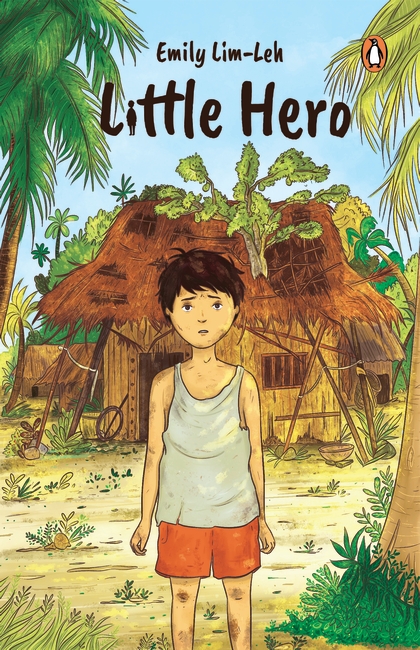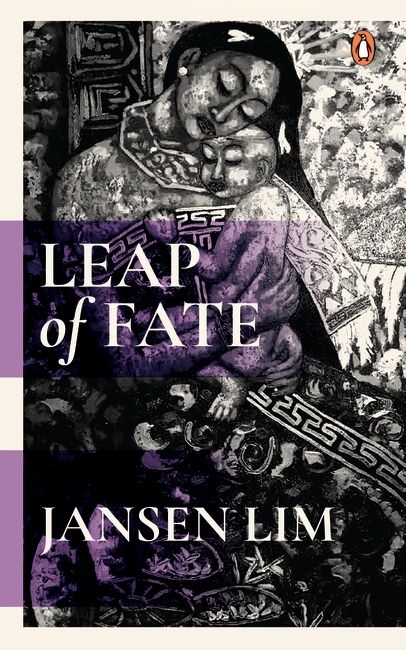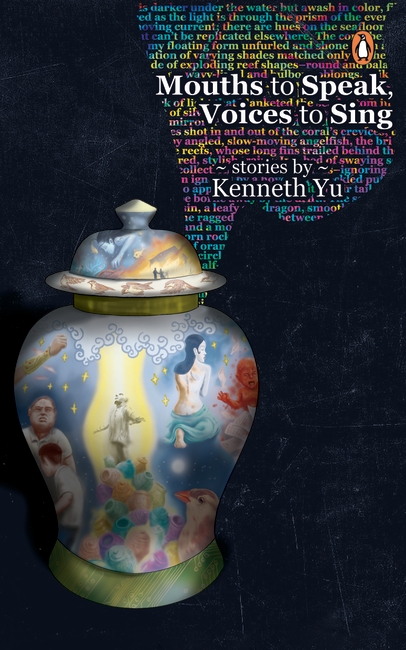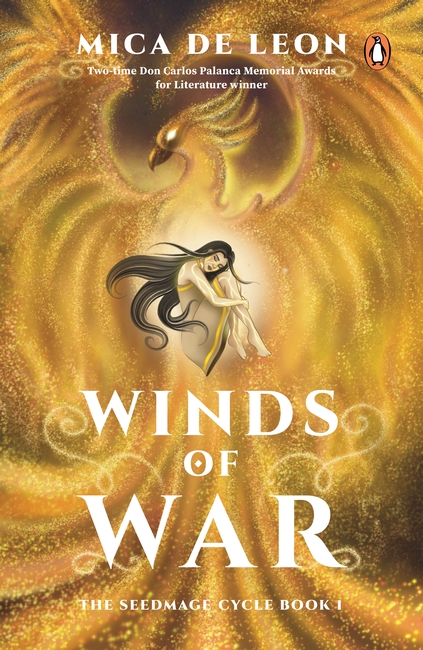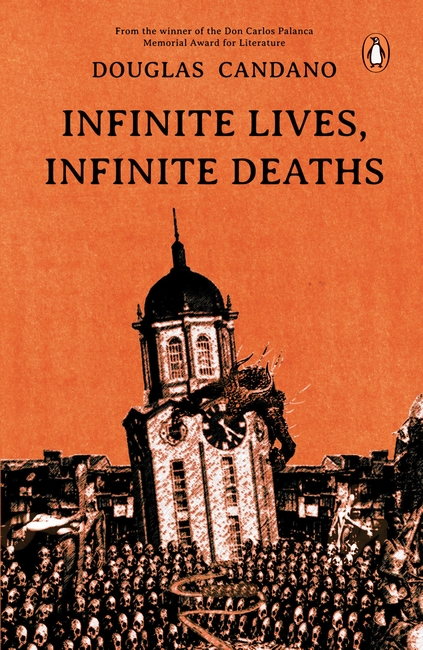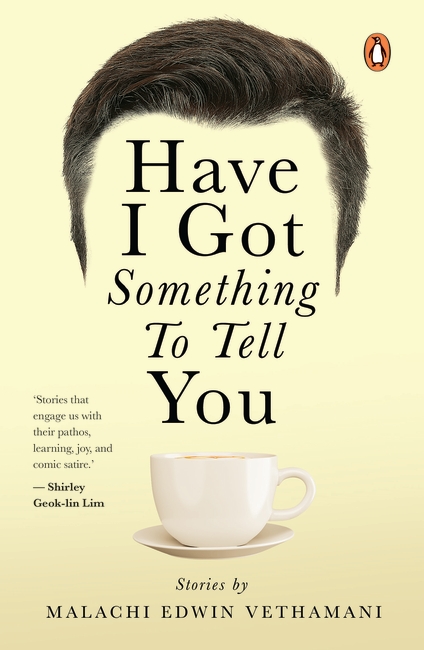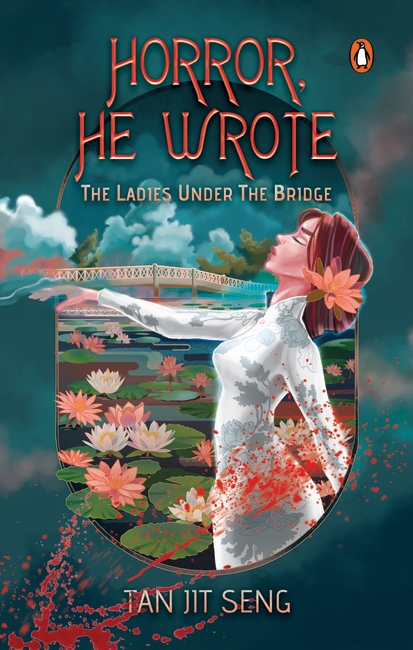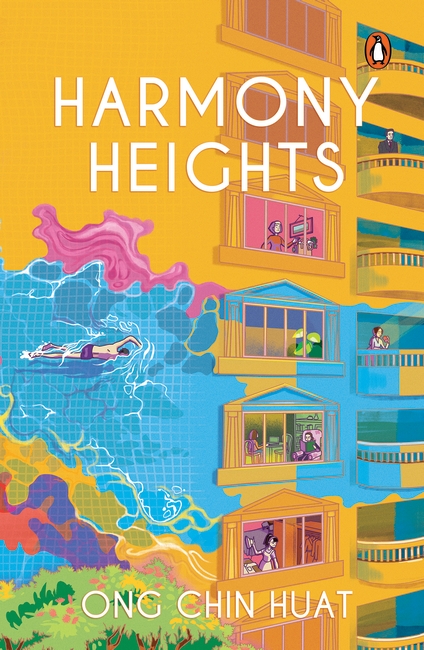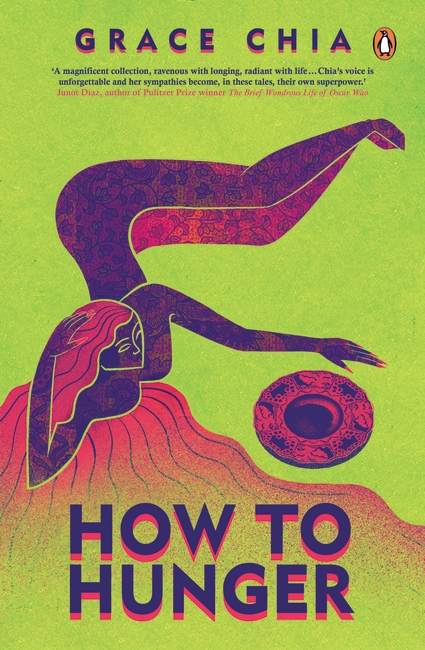
Seven-year-old Ying Xiong looks forward to a better life in post-war Singapore after the Japanese troops’ surrender in September 1945.
However, a new war erupts at home when Xiong’s father decides to return to his homeland in China. This tears the family apart when he takes Xiong’s two elder brothers back with him, whilst Xiong and his mother remain in Singapore.
Xiong navigates his childhood years alone in a poor neighbourhood as his mother ekes out a livelihood for them. He makes a friend in Kampung Silat, follows a fearsome teenage gangster in Silat Road and gets to know a brave police inspector who becomes his neighbour. Through all this, Xiong comes to realise what it takes to be a hero, which is also the meaning of his name Ying Xiong.
Little Hero is a touching work of fiction inspired by real-life events from the childhood years of the author’s father in post-war 1940s Singapore and beyond.

Singaporeans found themselves having to navigate livelihoods and relationships in unexpected tragicomic ways. Siblings would turn out to be lifelong enemies, money—or rather the lack of it—a crippling nightmare, love an ever posture of deception, wild gossip the coup de grâce. In spite of it all, the unforeseen, even death itself, would every so often become a flint for courage and redemption for some, especially Tin, a brave teenage girl who continued to defy familial odds, and Mona, a widow-turned-prostitute who was forced to thwart her own expectations.
Equal parts inspired by real-life anecdotes and borne of imagination, this story promises to lay bare the struggles and aspirations of those living in an era and a place unwittingly defined by societal taboos and quirky traditions that have long vanished from the face of contemporary Singapore. Ultimately, this is the story of what it means to be human when fate decides to take a leap.

Singing Chinese antiquities. Ghosts that only one young man could sense. A house with a sentient A.I. that becomes a part of the family. A cricket that acts as a tragic voice of reason. A man born and bred for neural mass surveillance.
This anthology is a collection of unpredictable stories of various genres—fantasy, science fiction, crime, horror and the supernatural—that touch on courage and fear, loss and resolution, denial and honesty, despair and hope…from an author who writes about being human in a world where the unseen is suddenly exposed. Every story is written in versatile language, with characters sure to elicit sympathy, and perhaps even familiarity, from readers who are sure to recognize themselves or those they know in the unique situations of each entertaining tale.

The lost gods of Kayumalon are returning.
Before the exodus of kings to Kayumalon, seed mages were revered by both strangelords and mortal men, their magic reserved only for the bloodlines the gods deem worthy. It was a time of peace and prosperity, but it was an age that had passed on into history and then myth and then superstitious whispers around the bonfire.
Now, seed magic is cheap, the power of the gods reduced to a bottle of oil and borrowed magic mass-produced on magic plantations and coveted by enemies within and without.
Little do they know that Kayumalon’s fate will fall in the hands of a simple Dayo slave girl.
Yin knows that Masalanta Island Plantation is not home—though she longs to become a part of it, if only to be noticed by the island’s most beautiful red-haired boy. All she knows is that she and her father have been on the run all her life, and no matter how many times she asks her father why, he would only warn her that the world means her harm.
When the boy does notice her, she follows him into the night against her better judgement and realizes too late that her father is right. She wakes up the next day, feeling like she had the world in the palm of her hands and power that any girl in her position could only dream about.

Infinite Lives, Infinite Deaths is a collection of stories that straddle genres such as horror, magic realism, metafiction, and science fiction, while stitching together elements from world mythology and folklore, Philippine history and society, and the Chinese-Filipino experience in a nightmarish version of Manila.
In Dreaming Valhalla, a family’s noodle restaurant is converted into a Norse-themed girly bar that parallels the rise and destruction of the Æsir. A group of children take a traumatic fieldtrip in A Visit to the Exhibition of the International Committee on Children’s Rights. In An Epistle and Testimony from June 13, 1604 a Spanish friar meets a Chinese convert bearing the stigmata, while in The Life and Death of Hermes Uy, a Chinese-Filipino entrepreneur opens a pharmacy in 1950s Manila, diversifying and expanding the business throughout the decades until its mysterious and abrupt closure.
A professor of applied folkloristics discusses the case of a young girl who returned home as a crone a few days after her elopement in A Reply to a Query, while Where Old Whores Go to Die features a grant application assessment detailing the context and procedures that govern a concentration camp for aged prostitutes. In The Way of Those Who Stayed Behind a Chinese-Filipino expatriate returns home and uncovers a family secret, while The Lament of Philip Reyes features a failed doctor coming face-to-face with the possibilities that never materialized throughout his life.

A collection of stories that explore the intersections and conflicts in family lives and sexuality that are typical in contemporary Asian societies, yet also universal. These stories are set from post-independent Malaysia to the early decades of the 21st century, the Covid-19 pandemic years. Women are torn between marriage and emancipated lives of their own, a young boy whose taste or memory is shaped by May 13, mixed-race couples split by the walls of race and religion, gay men’s love cannot be understood by their family or nation, a sex-addict has to come to terms with his own demons, an endearing but heart-breaking love between two young men, one with hearing-impairment, a bungling spirit causes further complications in attempting to fulfill a death wish and the withdrawal from a dishonest relationship. These stories are set against a backdrop of clash between superstition and modernity, longing, loneliness and the search for love and resolutions which often seem unachievable.

Lucky Lee has everything—wealth, charm, money, good looks—and does very, very little with it. He’s content. He’s happy. He takes for granted that life is good and always will be. But then his sister, the go-getting, successful, famous TV chef Pearl Lee, dies, horribly, and suddenly. Lucky is devastated. As he struggles to live without the big sister who’s always been the dominant, often relentless force in his life, the inconceivable happens—her cat begins to talk to him. It wants to know where Pearl is. It questions his eating habits, his outfit choices, his life. It hogs the TV. It tells him stories. Now grief-stricken Lucky has a major problem: he may very well be mad.

Chang Hong Lian, dubbed Red Lotus, is found dead in the lake at the Taiping Botanical Garden. Murdered with a borrowed knife, the plot is coincidentally similar to Adrian Holmes’ bestseller—a crime thriller ghostwritten by Hong Lian’s twin and Adrian’s mistress, Chang Pai Lian (aka White Lotus). The body of Red Lotus, who was with child, was found with the rare South Sea pearl necklace that belongs to Adrian’s wife, Marguerite Daisy Holmes.
Ernest Maxwell Graves, a writer of sorts, comes from a literary lineage. With his latest novel adding to the list of his failures, all he can do is end his life to end the shame. But fate has other plans for him. Saved by a ghost, Graves is promised success. He just doesn’t know yet the price he’ll be paying for it.
White Lotus, who was madly in love with Adrian, committed suicide under the bridge at the Taiping Botanical Garden where her sister’s body was found. She is back, still head over heels in love, and has a story to tell . . .
A murder mystery meets horror fantasy, this compelling tale of love and redemption will send a chill down your spine with every twist and turn.

Harmony Heights is anything but harmonious. In this nineties-style block of condominium located in a forgotten part of town resides a microcosm of bourgeois Malaysian society. From retired judges and doctors to CEOs and homemakers with side hustles, the residents in this apartment pride themselves on being model citizens.
But beneath the veneer of civility and respectability, lies a hotbed of secrets and skeletons that reveal the true nature of these residents. How will they respond to the trials and tribulations which life throws at them? Will they all manage to keep up appearances when their private affairs and exploits are exposed?
Harmony Heights is a peephole, allowing you to look in, to watch the unfolding lives of cheating husbands, ambitious women, unconventional families, and witness explosive (literally) situations. If you look close enough, you might just see someone you know. Are you ready to keep a secret?

In the terrain of untidy relationships lies an ensemble of individuals coupled or alone, each driven by desire, cravings or folly. How To Hunger is a smorgasbord of short stories about how humans hunger—for love, lust and loyalty—where their voracity for the ordinary and sublime consumes them to the very end.
A Singapore emigrant chews over her sense of belonging. A vegetarian Western tourist finds a meatier version of Asia in a massage parlour. A young couple deepens their romance through home-cooked cuisine. A friendship between a Taiwanese and Singaporean ages over a decade like fine wine. An office worker’s submerged desires bubbles over in a hotpot restaurant. A married woman is tempted
by the sweet gifts of a suitor. An undertaker gets a taste of a spicy side of life. And a widower gets triggered by the scent of a curry puff.






